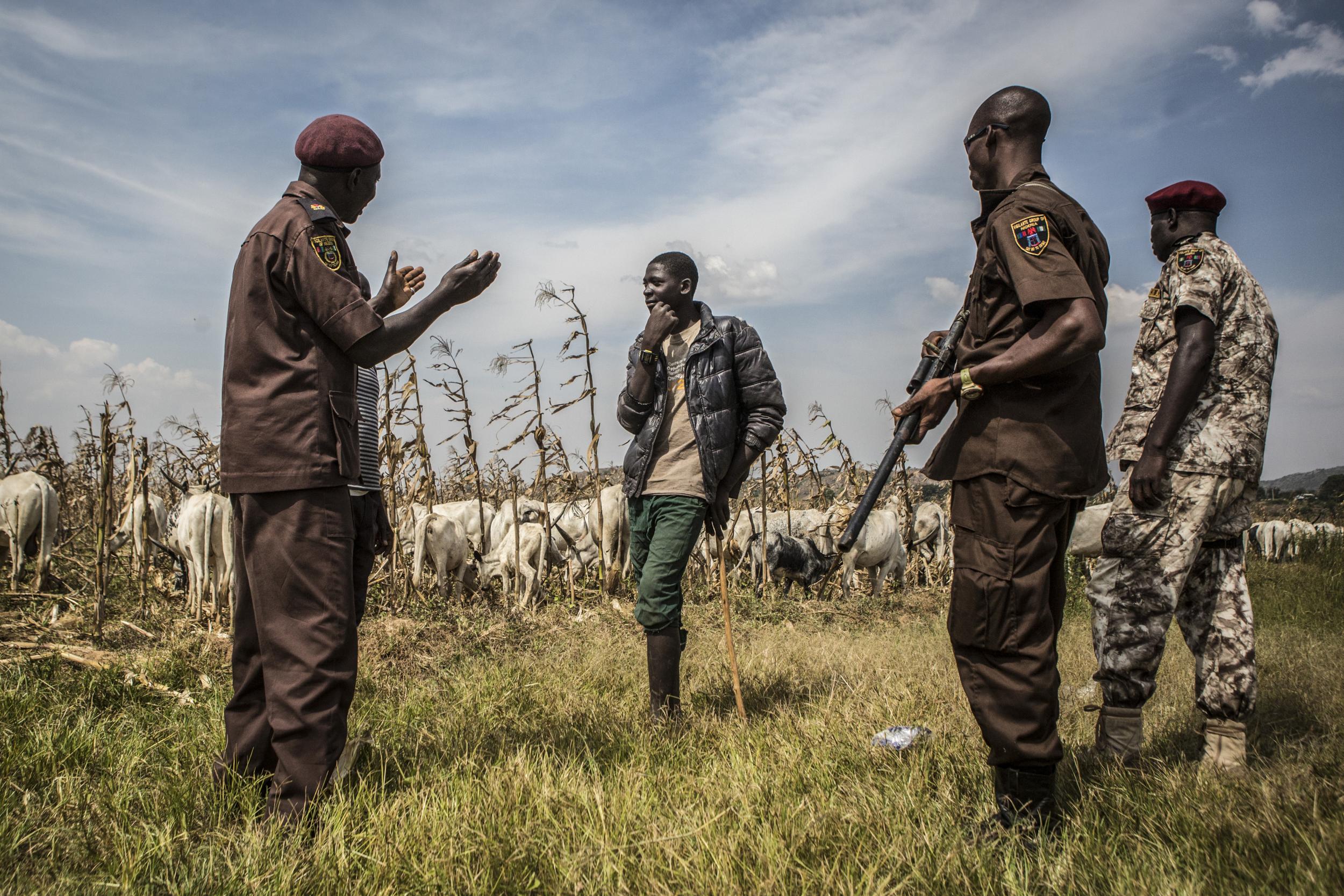At least 140 villagers killed by suspected herders in attack on remote villages in Nigeria
17 targetted communities during ‘senseless and unprovoked’ attacks on Saturday and Sunday

Your support helps us to tell the story
From reproductive rights to climate change to Big Tech, The Independent is on the ground when the story is developing. Whether it's investigating the financials of Elon Musk's pro-Trump PAC or producing our latest documentary, 'The A Word', which shines a light on the American women fighting for reproductive rights, we know how important it is to parse out the facts from the messaging.
At such a critical moment in US history, we need reporters on the ground. Your donation allows us to keep sending journalists to speak to both sides of the story.
The Independent is trusted by Americans across the entire political spectrum. And unlike many other quality news outlets, we choose not to lock Americans out of our reporting and analysis with paywalls. We believe quality journalism should be available to everyone, paid for by those who can afford it.
Your support makes all the difference.At least 140 people have been killed by gunmen who attacked remote villages over two days in north-central Nigeria’s Plateau state, survivors and officials said.
It was the latest of such mass killings this year blamed on the west African nation’s farmer-herder crisis.
The assailants targeted 17 communities during "senseless and unprovoked" attacks on Saturday and Sunday, during which most houses in the areas were burned down, Plateau governor Caleb Mutfwang said in a broadcast on the local Channels Television.
"As I am talking to you, in Mangu local government alone, we buried 15 people. As of this morning, in Bokkos, we are counting not less than 100 corpses. I am yet to take stock of (the deaths in) Barkin Ladi," he said.
"It has been a very terrifying Christmas for us here in Plateau."
Amnesty International Nigeria’s office told the Associated Press that it had confirmed 140 deaths in the Christian-dominated Bokkos and Barkin-Ladi local government areas of Plateau, based on data compiled by workers on the ground and from local officials, though locals feared a higher death toll with some people unaccounted for.
Some said it took more than 12 hours before security agencies responded to their call for help, a claim the AP could not independently verify, but which echoes past concerns about slow interventions in Nigeria’s security crisis, which has killed hundreds this year, including in Plateau.
"I called security but they never came. The ambush started at six in the evening but security reached our place by seven in the morning," said Sunday Dawum, a youth leader in Bokkos.
At least 27 people were killed in his village, Mbom Mbaru, including his brother, he said.
No group claimed the attacks though the blame fell on herders from the Fulani tribe, who have been accused of carrying out mass killings across the north west and central regions where a decades-long conflict over access to land and water has worsened the sectarian division between Christians and Muslims in Africa’s most populous nation.
The Nigerian army said it had begun "clearance operations" in search of the suspects, with the help of other security agencies, although arrests are rare in such attacks.
"We will not rest until we bring all those culpable for these dastardly acts to book," said Abdullsalam Abubakar, who commands the army’s special intervention operation in Plateau and neighbouring states.
President Bola Tinubu, who was elected this year after promising to help tackle the security challenges that his predecessor failed to address, has yet to make any public comments about the latest attacks.
His government and others in the past have not taken any "tangible action" to protect lives and ensure justice for victims in the conflict-hit northern region, Amnesty International Nigeria director Isa Sanusi told the AP.
"Sometimes they claim to make arrests but there is no proof they have done so. The brazen failure of the authorities to protect the people of Nigeria is gradually becoming the norm," he said.
Join our commenting forum
Join thought-provoking conversations, follow other Independent readers and see their replies
Comments